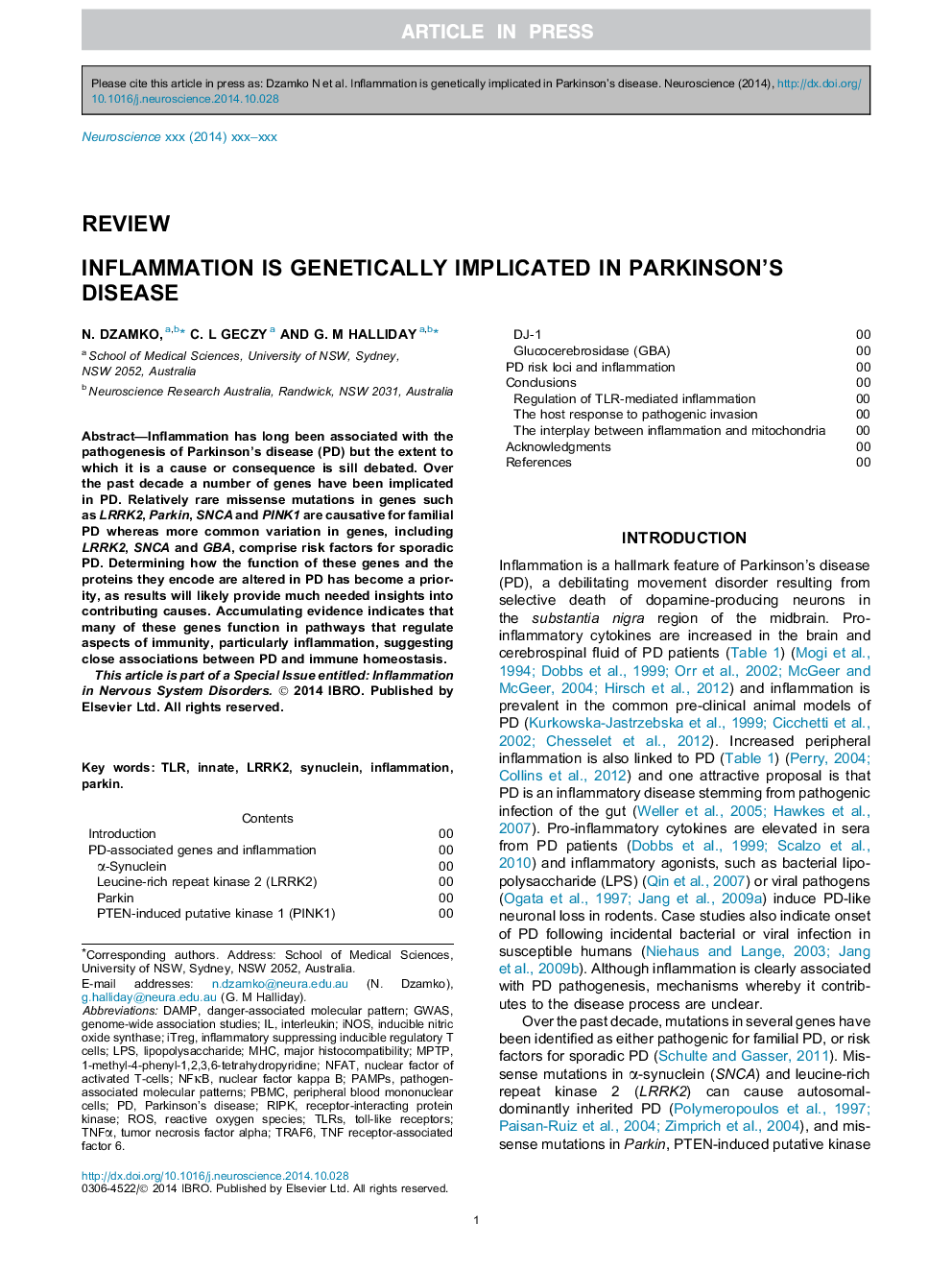| Article ID | Journal | Published Year | Pages | File Type |
|---|---|---|---|---|
| 6272052 | Neuroscience | 2015 | 14 Pages |
Abstract
Inflammation has long been associated with the pathogenesis of Parkinson's disease (PD) but the extent to which it is a cause or consequence is sill debated. Over the past decade a number of genes have been implicated in PD. Relatively rare missense mutations in genes such as LRRK2, Parkin, SNCA and PINK1 are causative for familial PD whereas more common variation in genes, including LRRK2, SNCA and GBA, comprise risk factors for sporadic PD. Determining how the function of these genes and the proteins they encode are altered in PD has become a priority, as results will likely provide much needed insights into contributing causes. Accumulating evidence indicates that many of these genes function in pathways that regulate aspects of immunity, particularly inflammation, suggesting close associations between PD and immune homeostasis.
Keywords
TLRTNFαMPTPLPSLRRK2PBMCNFATTRAF6iTregiNOSDAMPPAMPs1-methyl-4-phenyl-1,2,3,6-tetrahydropyridineNFκBROSTLRsinflammationpathogen-associated molecular patternsDanger-associated molecular patterninterleukinMajor histocompatibilityParkinson’s diseasetumor necrosis factor alphaInnateRIPKperipheral blood mononuclear cellsinducible nitric oxide synthaseSynucleinnuclear factor of activated T-cellsTNF receptor-associated factor 6nuclear factor kappa BlipopolysaccharideMHCGenome-wide association studiesGWASParkinreceptor-interacting protein kinaseReactive oxygen speciesToll-like receptors
Related Topics
Life Sciences
Neuroscience
Neuroscience (General)
Authors
N. Dzamko, C.L Geczy, G.M Halliday,
